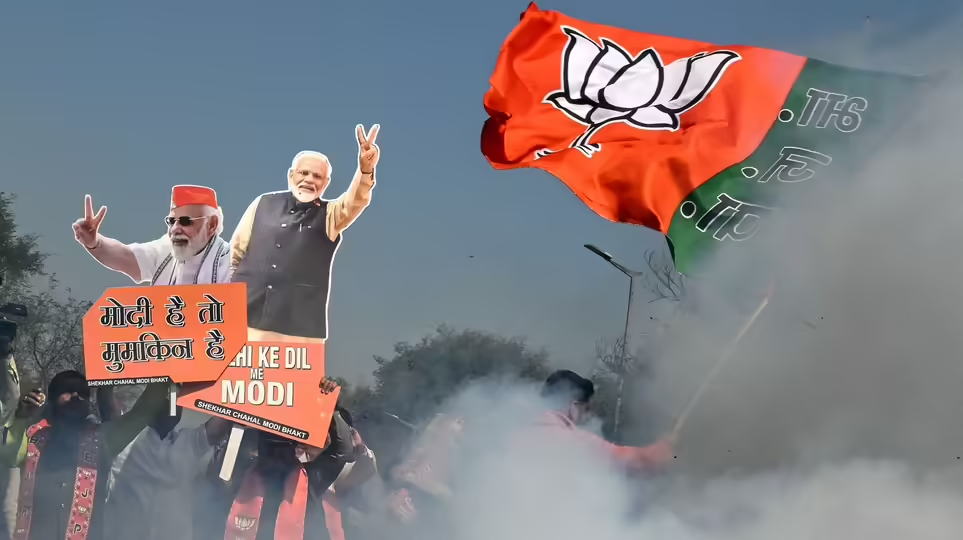Delhi's Political Shift: BJP Ousts AAP After 27 Years

Bharatiya Janata Party (BJP), under the leadership of Prime Minister Narendra Modi, has secured a decisive victory in the Delhi Assembly elections, marking its return to power in the capital after nearly three decades. The BJP clinched 40 out of the 70 assembly seats, effectively ending the Aam Aadmi Party's (AAP) decade-long governance.
The AAP, led by Arvind Kejriwal, managed to secure 17 seats, a significant decline from its previous stronghold. Notably, both Kejriwal and his deputy, Manish Sisodia, faced defeats in their respective constituencies, signaling a substantial shift in the political landscape of Delhi.
This electoral outcome is perceived as a substantial boost for the BJP, especially following its coalition-dependent victory in the previous year's national election. The party's resurgence in Delhi underscores its growing influence and the electorate's endorsement of its policies and leadership.
The voter turnout was noteworthy, with over 60% of the more than 15 million eligible voters casting their ballots. This high participation reflects the citizens' engagement and interest in shaping the governance of their city.
The BJP's campaign was marked by promises aimed at various segments of the population. The party pledged monthly financial assistance of 2,500 Indian rupees to all poor women, a one-time payment of 21,000 rupees to each pregnant woman, subsidized cooking gas, and pensions for the elderly. These commitments were designed to resonate with the middle class and economically disadvantaged groups, countering AAP's established welfare initiatives.
The AAP, known for its focus on welfare policies such as free water and electricity for the poor, faced challenges amid allegations of corruption. Kejriwal's arrest last year on bribery charges, which he denies, may have influenced public perception and voter sentiment.
The Congress party, which once held sway in Delhi, failed to secure any seats in this election, highlighting its continued struggle to regain a foothold in the capital's political arena.
This election marks a pivotal moment in Delhi's political history, with the BJP reclaiming control after a prolonged absence. The results indicate a shift in voter preferences and set the stage for new policy directions under BJP's leadership.
As the BJP prepares to form the new government, the focus will be on delivering on its electoral promises and addressing the expectations of Delhi's diverse populace. The party's ability to implement its proposed initiatives will be crucial in consolidating its position and ensuring sustained support from the electorate.
The transition of power also presents an opportunity for the BJP to showcase its governance model in the national capital, potentially influencing political dynamics beyond Delhi. Observers will keenly watch how the party navigates the challenges and responsibilities that accompany its return to power in this significant urban center.
In conclusion, the BJP's victory in the Delhi Assembly elections signifies a remarkable comeback, ending AAP's long-standing administration. The electoral shift reflects changing voter sentiments and ushers in a new chapter in the capital's governance.
